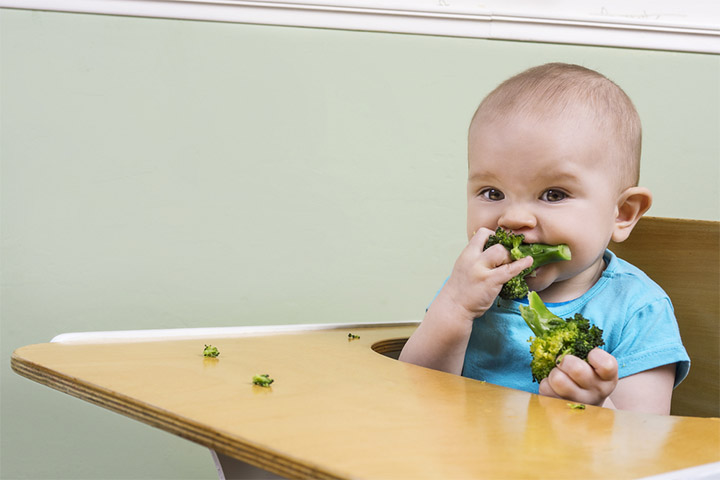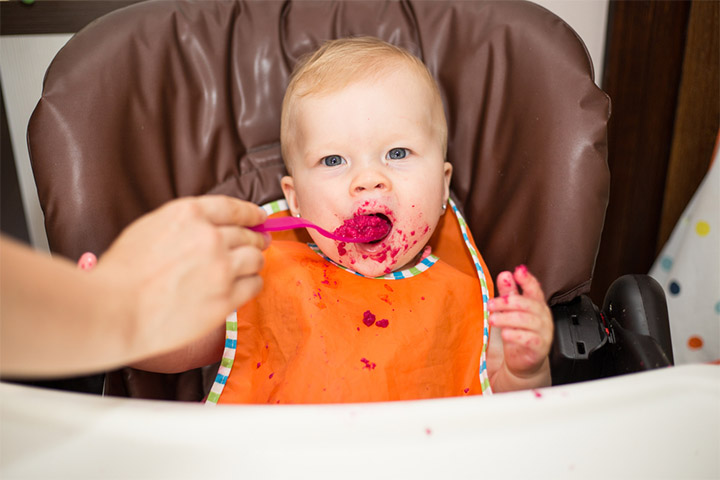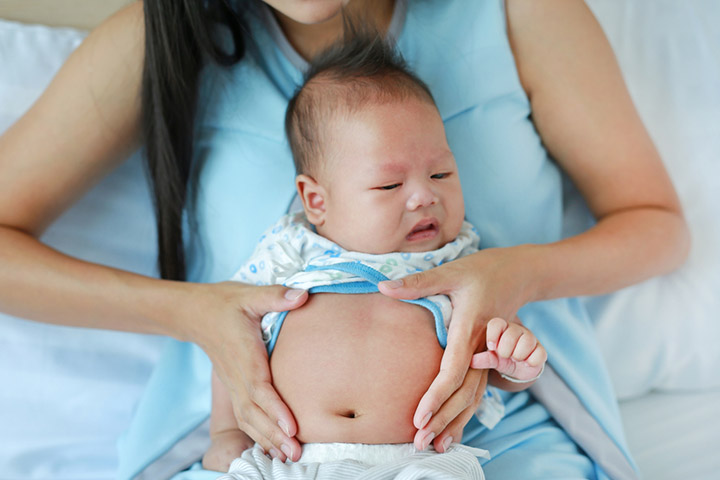White curds in baby poop or streaks and chunks in poop are not always a cause of concern. The undigested fat globules of breast milk may be passed along with the excretion of poop in breastfed babies. Formula-fed babies may also experience the same symptoms. Apart from poop discoloration, medical attention is suggested if your baby shows symptoms of an allergic condition or other disorders.
Read this post to learn about the possible causes of white curds in baby poop and signs that suggest the need to see a doctor.
Causes Of White Chunks In Baby Poop
The appearance of white chunks in the poop of breastfed or formula-fed babies is fairly normal. They may be clumps of undigested milk fat or undigested excess breast milk or formula protein that curdled.
Dr. Cindy Rubin, MD, IBCLC, a board-certified pediatrician and breastfeeding specialist from Westchester, Illinois, says, “White cottage cheesy chunks or curds in baby poop are not uncommon. We see this a lot, especially in breastfed babies but it can be in formula-fed babies. Poops change so frequently in babies that the colors could be almost anything in the rainbow.”
Other common reasons for white curd in infant poop are (1) (2)
- Undigested food: If your baby has started consuming solid food, the white chunks in their poop may be undigested bits of food. It happens because babies cannot chew properly, and their digestive system is still adapting and developing as they grow and are introduced to new foods.
- Infection/illness: Although it is uncommon for breastfed baby poop to be lumpy or have white chunks because of food allergy or illness, you cannot rule out this possibility. If you notice signs of irritability, fever, pale or whitish frothy stool texture, and uncontrollable crying, consult your doctor.
Symptoms That May Accompany White Curds In Baby Poop
Although it is normal for babies to discharge stool containing milk curds, consult your pediatrician if you notice the following symptoms as well.
- Pale poop: Pale yellow or gray poop may signify that the baby’s liver is not producing enough bile (3).
- White poop: Grayish or white poop in babies could indicate a blocked liver or biliary atresia. Though these conditions are rare in newborns, they should not be ruled out and require emergency evaluation by a doctor.
Other Colors Of Baby Poop
The color of normal baby poop varies as they grow, depending on their food, bowel movement and function, and gut health. However, some common colors of normal poop are as follows (4):
- Black poop: Also known as meconium, this is the baby’s first poop after birth. Black poop contains all the substances that the baby ingested while in the womb.
- Yellow poop: Your baby’s poop will eventually look yellowish and grainy in the first week after birth.
- Green poop: Once your baby starts consuming solids, the color of their poop may change depending on what they eat. Green baby poop signifies a diet rich in iron or iron supplements or can be due to green leafy vegetables.
- Brown poop: It signifies healthy digestion with no cause of worry.
- Red poop: If your child had anything containing food colors or beetroots, red poop is normal. However, if you notice specks of blood in the poop, consult your doctor as it may be a sign of constipation.
Signs To Call A Doctor
White chunks in baby poop are not a cause for concern. Dr. Rubin adds, “Pediatricians will only truly worry about bloody (red), pitch black (digested blood), or stark white (problem with the liver) poop. The white would need to be throughout the whole poop for it to be worrisome, not just little chunks. If you see those colors, you should call your doctor right away. I would only worry about food intolerance if the baby is eating poorly, seems in pain with or after eating, or isn’t gaining weight well.”
However, consult your healthcare provider if the following signs accompany it (5) (6):
- Diarrhea with blood specks in the poop
- Gassiness
- Pain in the stomach or abdomen
- Pale yellow, white, or clay-colored poop
- Lactose intolerance symptoms such as belly bloating, excess gas, or abdominal pain
- Symptoms of a milk allergy, such as wheezing, vomiting, and fussiness after feeding
- Frothy poop-like consistency with mucus
Key Pointers
- White curds in the feces of newborns who are breastfed or fed formula are very common.
- White curd in baby poop can be caused by undigested food, food allergies, or sickness.
- Consult your pediatrician if you notice pale yellow or grey poop in babies along with feces containing milk curds.
- If your baby exhibits lactose intolerance signs such as wheezing, vomiting, or fussiness shortly after feeding, contact your pediatrician immediately.














